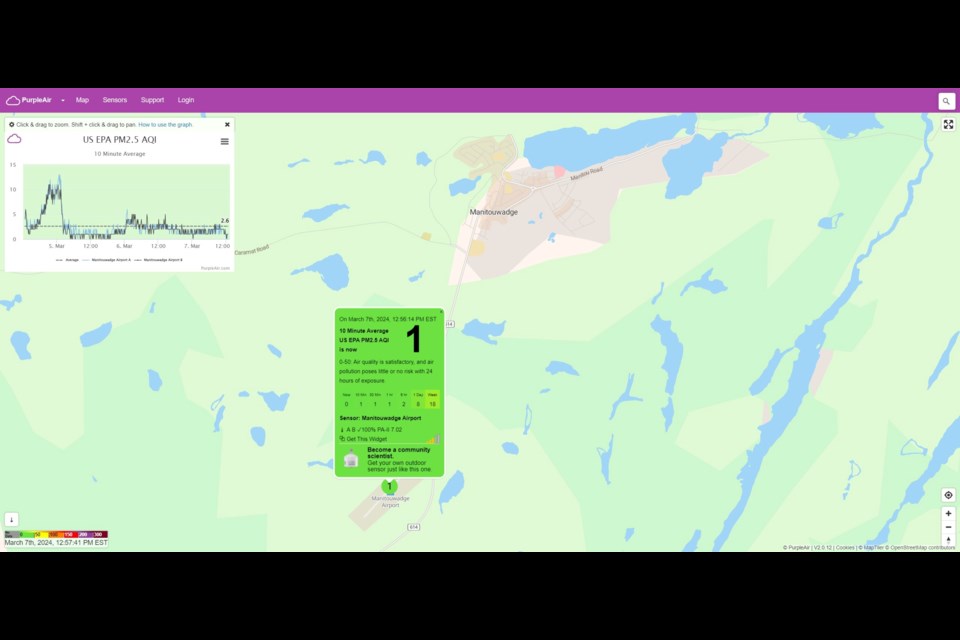MANITOUWADGE — Wildfire season will be upon us in just a few months and it’s never too early to prepare.
That’s why the Township of Manitouwadge has partnered with Environment and Climate Change Canada (ECCC) to monitor and improve forecasts for wildfire smoke in the northeast region by installing an air quality sensor at the Manitouwadge Municipal Airport.
The township announced their participation in the pilot project on March 1 via its Facebook page.
Executive assistant for the township, Katie Law, said the township is happy to partner with ECCC to paint a clearer picture of how wildfires effect the area.
“The folks at Environment and Climate Change Canada reached out to us to see if this is something that we would be interested in doing because they don’t have much data for our area,” she said.
After taking ECCC’s proposition to township council, Law said staff were directed to work with ECCC to go ahead and install a sensor at the airport.
“We’re excited about it. We’re looking forward to seeing what comes of that,” she said.
In a statement provided to Dougall Media, ECCC’s spokesperson Samuel Lafontaine said this pilot project has been going on in communities across the country since 2018 in partnership with the University of Northern British Columbia.
“ECCC is continually striving to improve all the services it provides to the people of Canada. Part of this effort involves partnering with the University of Northern British Columbia on a pilot project for low-cost air quality sensors. The aim of the pilot project is to evaluate the potential of this new technology to improve Air Quality Health Index (AQHI) forecasts and related services for people in Canada,” Lafontaine wrote.
“As part of the pilot project, ECCC has partnered with organizations across Canada to install several low-cost fine particulate matter (PM2.5) sensors in rural and remote communities that are at risk from forest fire smoke. PM2.5 is a component of forest fire smoke that reduces surface visibility and causes health problems, especially for at-risk populations including children, the elderly, pregnant women, and people with lung and heart disease.”
Lafontaine said ECCC’s partnership with the University of Northern British Columbia also produced an air quality map tool that “gives external organizations access to real-time, quality-assured PM2.5 concentrations” measured by installed sensors.
Law said the data collected by the sensor is publicly accessible. She encouraged residents of Manitouwadge who are interested in learning more about the project or simply want to see the data to visit this page.
